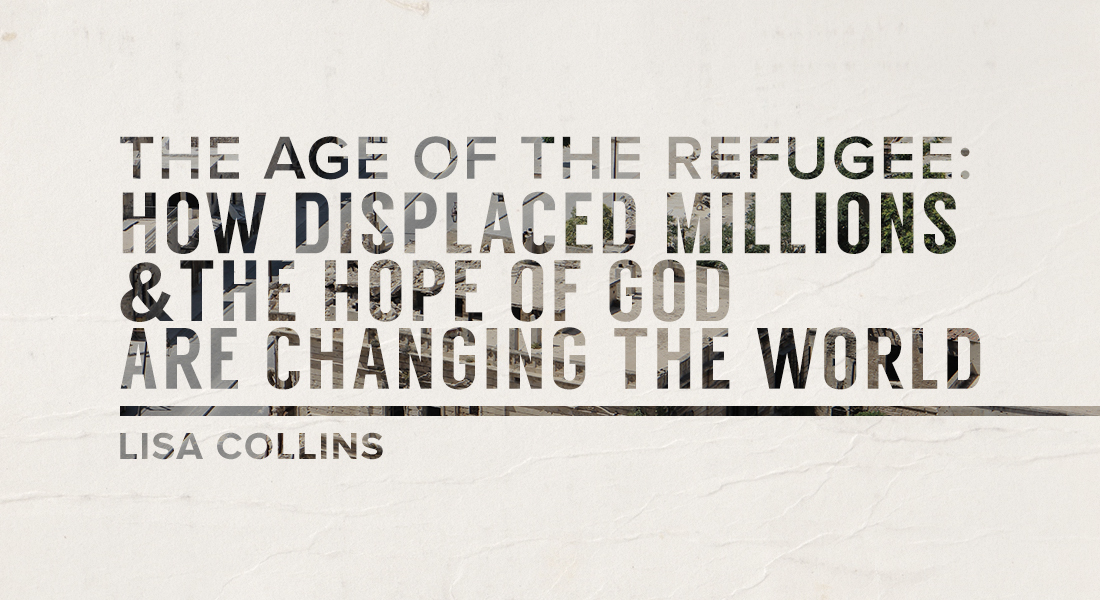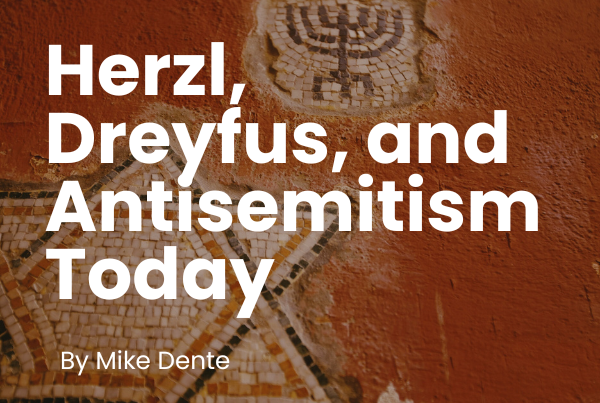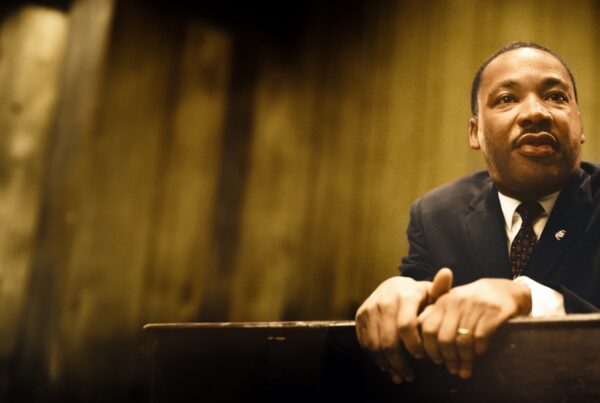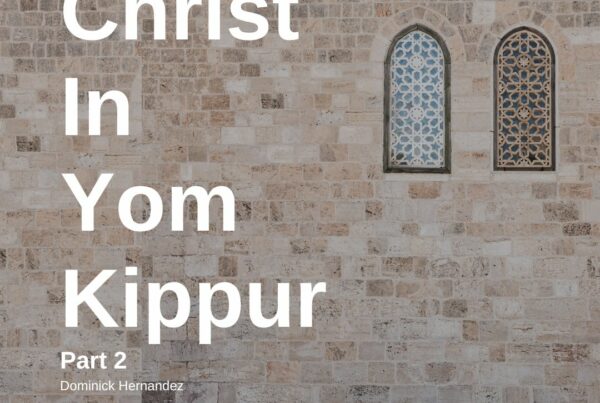
It’s incredible that in a day the Lord can completely change your life. For me it happened this summer, June 22, 2015. I went to visit a pastor, a friend of mine, to do ministry alongside him for the day. He asked if I wanted to go meet the refugees. I said, “Sure. That’d be great!”
As we pulled up near the abandoned brick building and the overgrown field, we proceeded to spend the next couple of hours meeting some of the hundreds of Afghanis hidden under the random slabs of tin they were using for shelter in that open field—men along with their wives, sisters, and beautiful children. My heart was awakened to a situation that I had never before seen with my eyes.
Pastor Tibor Varga said, “If I and the few others don’t come with food and water each day, they don’t eat.”
Newscasters came out of nowhere and began interviewing us in that makeshift refugee camp. They asked me what I thought of the “wall” being built to keep refugees out of Hungary and other political questions. I told them that I was unaware of the situation, but that I did know the Bible tells us if we are in danger for our lives and are innocent, that we are to provide the foreigner a city of refuge—a safe place to go. We are to welcome the strangers in our land (Joshua 20:1-6; Exodus 23:9).
And then I looked at the three newscasters surrounding me and asked, “Weren’t you in a similar position in the not-so-recent past? Ten, 20 years…Serbia, Croatia, Hungary. Aren’t you thankful people had helped you?” They nodded their head in agreement, reflecting back, and for the first time a warm smile came upon their faces.
That evening I went to my comfortable bed in my immaculate hotel room and clicked on BBC News. Over the next hour, I learned that the world was talking about this “wall” to keep the refugees from easily entering Hungary.
My eyes and heart were awakened…for such a time as this (Esther 4:14). Now I was beginning to be informed. I was responsible. The reality is the world is a volatile place with wars and rumors of war (Matthew 24:6-7). And those of us that have read the end of the Bible—the promise of Jesus’ return—know that the days are close, and that we have a front row seat for the most incredible outpouring of God’s Spirit that the world has ever known.
As our team from different Calvary Chapel churches and Calvary Chapel Bible College Europe served at the border crossings of Hungary and Serbia, the UNHCR (United Nations High Commissioner for Refugees) reported upwards of 11,000 refugees crossing into Hungary on September 13 alone. Our meager team, along with many volunteers, was there to serve them with a smile, a warm blanket, and a listening ear.
Most arrived with just a change of clothes in their tattered backpack, blistered feet, the children and elderly in tow. With tears in their eyes they shared their stories of why they left their country, reflecting back on missiles being dropped on their homes. They were well aware that the sentence for being a follower of Jesus was punishable by death and recalled the horror of seeing a friend beheaded on the street or the terror of being brutally beaten and imprisoned for confessing Jesus. They expressed the reality of the homeland they left; some experienced weeks and months without access to electricity, food, and water.
The decision to make the death-defying journey was an obvious one—even though it meant possibly dying somewhere on the trip, 1,700 miles (2,800 kilometer) across water, through woods, on random buses and trains, with absolutely no certainty of being welcomed into another country. The alternative was to stay and continue to live under tyranny and abuse, and still most certainly die. The stories they shared were so unimaginable that I could not even fathom or compare them to any “suffering” I’ve ever experienced in my life.
On September 2, the world looked on and saw a beautiful Syrian baby dead on the shore of Greece. The crisis hit our hearts and became breaking news, although the refugee crisis has been just that for many years—a severe crisis!
I met one amazing 24-year-old Syrian named Abdul at the Röszke, Hungary makeshift refugee camp located in a large field. I asked him his story, and he shared about living in his high-rise in Damascus. He recalled the day a bullet flew through his living room, and the sparkle of the bullet caught his eye. He put his foot on the warm bullet now laying on his living room floor, and he immediately knew that it was time to try to escape (and possibly die trying), or stay and most certainly die trying to survive.
He traveled with his cousin, walking for hundreds of miles along with 20 others through barricaded militant groups that they had to bribe for passage. He recalled it with sadness in his eyes saying, “We were lucky, as others were beaten or killed.”
One lady with them was eight-and-a-half months pregnant; they were also traveling with very small children. Abdul asked the women to pack only one change of clothes, but they couldn’t help but bring cherished memories from home for their future life, plus a supply of food and water. The ladies explained that they knew their load was heavy, but they wanted to bring them just in case anyone got hungry. Abdul said, “We don’t know if we live until tomorrow. We should pack lightly so we don’t put ourselves in more danger with so much to carry.”
Once they made it to the coast, they boarded an overcrowded rubber raft that was crammed with 60 people, three levels deep. Abdul was on top, with no life preserver, as there were not enough for everyone. He was terrified because he couldn’t swim. This was a treacherous crossing with 3,103 refugees having died at sea this year alone, according to the International Organization for Migration (IOM). Abdul described the terror he felt seeing a life preserver and engine parts of a crashed boat drifting by. He then took a deep breath and tried to push down the fear of being the sea’s next victim.
As this young man shared with me, I better understood the quote I had seen on CNN, “You have to understand,” the Somali-British poet Warsan Shire once wrote about the refugees, “that no one puts their children in a boat unless the water is safer than the land.”
They made it to the island, registered, and then took a boat to Athens, Greece. From Athens they walked a while and then took a bus to the Macedonia border. When they arrived at the Macedonian checkpoint, the border was shut for three days, and thousands of refugees had to wait to cross. They had no food, no water, no toilets, no shelter. They stood in the cold rain for nearly 72 hours as they waited and wondered if they would ever continue their journey.
The border reopened once the throngs of people were too much for the authorities to maintain. Women had gone into labor; children were collapsing because of the lack of food. Once through the border, they boarded a bus, and Abdul said the bus ride felt like five-star comfort just being out of the rain and elements.
From there they walked from Serbia into the makeshift refugee camp in Röszke, Hungary, where he now stood in front of me in that dark field with a smile of gratitude covering his face. We were surrounded by heaps of garbage, as each day thousands of people walked across those railroad tracks in search of hope and freedom.
I offered him what we had: a can of tuna, an apple, a bottle of water, and he said, “No, thank you, we have everything we need.” He thanked us for our love and hospitality. He said with a glimmer of hope in his eyes, “And now, this is truly five-star.” There were tents and blankets as far as our eyes could see, but even so, not enough for everyone. Many slept on the dirt amidst the trash left from previous travelers. Those lying on the dirt looked comfortable and peaceful, as they were desperate for just a few hours of sleep before continuing their journey from Hungary to Germany, Sweden or England, the different places they desired to go in Western Europe. Many had family or friends eagerly awaiting their arrival.
I have never cried so hard as I did on the evening of September 14, when the razor barbed wire fence was sealed between Serbia into Hungary, blocking the entrance of these newfound friends from entering this route into Hungary.
The past few months have been signified by deep compassion for the migrants. As they shared their stories, we would cry together, but I also experienced such overwhelming joy as I sat on the edge of my seat, hearing story after story of God’s guidance and provision during their difficult journeys.
One friend, John, an Iranian Christian who left his country because of persecution, was dropped off at the Serbian border at 2 a.m. by an illegal trafficker driving a taxi at the edge of the wooded area leading into Hungary. The Serbian taxi driver stopped in the dark, told him to walk through the woods to where the police were guarding the border, and suggested this was the best way to enter into the European Union.
John had not eaten or slept for two days. As he relived the story, he said, “It was pitch dark, I could not make out which way to go in the ‘jungle,’ I could hear animals in the darkness.” Feeling overwhelmed, he cried out to Jesus; and suddenly, he saw a tiny light glimmer to the front, just to the left. As he walked toward the little sparkle, many more lightning bugs lit up the path clearly beneath his feet. Those fireflies surrounded him on both sides, lighting and leading the way to the border. He walked unnoticed past the armed police and safely into Hungary. John has been instrumental in bringing many Persians, Afghans, Africans and even Turkish Muslims to the saving knowledge of Jesus Christ since he arrived in Europe. He is an educated, affluent, kind, Jesus-loving person.
On Sunday, we baptized three guys from Iran, one from Turkey, and one from Nigeria and gave them Bibles. As John held up the Bible to a Bible study group of Persian, Afghan, Nigerian, Kurdish and Ugandan refugees with over 20 men in attendance—all growing in their love of Jesus and digging into the Word of God—he announced, “In my country, I would be put to death for having this book (the Bible) in my home.” That was such a reminder of how powerful the Word of God is—sharper than a two-edged sword. It changes lives and hearts, and Satan will do all he can to steal, kill and destroy, to keep it out of our hands. But Jesus came to give life abundantly.
The kindness and love of these newfound friends have changed my heart and life; their generosity to share anything and everything they have is humbling. Most of those we met who were not yet Christians have very open hearts. They simply have not experienced or been taught the truth that God is a loving Father, and Jesus is the way, the truth and the life.
Over the past couple of months, many have given their lives to Jesus as Lord and Savior. It’s mind-blowing grace. God is powerfully pouring out His Spirit. It’s like nothing I’ve ever witnessed. Their hunger for the Word is contagious. As one man shared his testimony of escaping a country where Christianity is illegal, he said, “I want to live for Christ, but I would die for Christ. But now, I get to live for Him!”
Last week, as we drove the refugees home from the Bible study, someone asked, “You said God hates for us to lie, so if a knife is held to my throat or my child’s throat and they ask me to profess Christ, but telling the truth would result in being put to death, is it okay to lie?”
Their situation has challenged my own worldview; they have made me seek Jesus for His grace and beg Him to grow me in the way that He has grown these men and women through persecution as they faced with the question: Would I live for Jesus? Would I die for Jesus?”
From my limited perspective, this current situation is beyond overwhelming—financially, emotionally, spiritually. My friends and my pastors have been an example in my life to encourage me to simply love the one right in front of you—just as Jesus did.
I am eternally grateful that the Lord has brought these new friends into my life. They have challenged me and inspired me to wrestle with my faith, to grow in my passion for the Word of God, to evangelize more boldly and to love like Jesus loves.
What can we all do?
. Pray!
We can’t underestimate the power of prayer! Pray for the government officials, for the refugees, for those trapped without hope. Pray that Jesus would reveal Himself through dreams and visions, through Christians whom God will bring in their paths.
. Give!
Many organizations are daily feeding thousands of refugees as they make the transit through cities. Organizations such as Calvary Chapel churches, Samaritan’s Purse, Operation Mobilization, and others are on the ground offering aid. It is best to give financially as the needs change daily and food, Bibles, tents, shoes, and medical supplies can be purchased more affordably in the current location of ministry.
Lastly, set aside fear and prejudice and don’t believe everything you see on TV and Facebook as fact. I have watched TV cameramen asking the refugees to chant riotously, signaling them by counting to three, and then going behind to turn on the camera after teaching them the performance to have something volatile for worldwide TV. Most of these refugees are just like you and me, moms and dads, family men, college students, professionals, and elderly people seeking a life of hope and freedom.
Will this refugee crisis of nearly 60 million people in the world displaced by war, conflict or persecution impact our world forever? Yes, for sure. According to the Joshua Project, they estimate that there are 2.97 billion unreached people living in the 10/40 window. In many of these locations, it is illegal or impossible for a girl like me to go and minister Jesus there. But God in His love, goodness, and sovereignty has brought the nations to us, to our backdoor, so that we would love and shine Jesus to them.
On June 18, 2015, the UN reported staggering numbers, with around 38.2 million people displaced in their own country, while 19.5 million have taken sanctuary in other countries. To put it another way, one in every 122 people on the planet is displaced. The Syrian Civil War has led to the displacement of 9.5 million Syrians, around 43 percent of the total Syrian population. The last time this figure crossed 50 million was during the Second World War.
The age of the refugee is upon us.
I pray that many will find the life they are seeking. But most of all, that they all come to the saving knowledge of Jesus Christ. And then be used as ambassadors of God’s grace to their friends and family in Syria, Iraq, Iran, Afghanistan, Africa, and throughout the Middle East as they Skype and WhatsApp, and call their families back home.
One older Turkish Muslim man came to know Jesus, and was baptized Sunday. Two weeks ago his Muslim mother called from Turkey and said to him, “Son, God gave me a dream about you, He showed me clearly you are in the path of light, in the true Light, you have found the Way! Whatever it is you are now doing in seeking God, don’t stop! Don’t stop how you are walking, reading, and praying because you have found the Way!”
It is so encouraging to see that the Lord is saving souls despite this difficult time of crisis. I pray that my life would be a tangible reflection of God’s love for the nations, as we too are just sojourners in this world. May God use us all, for such a time as this.










